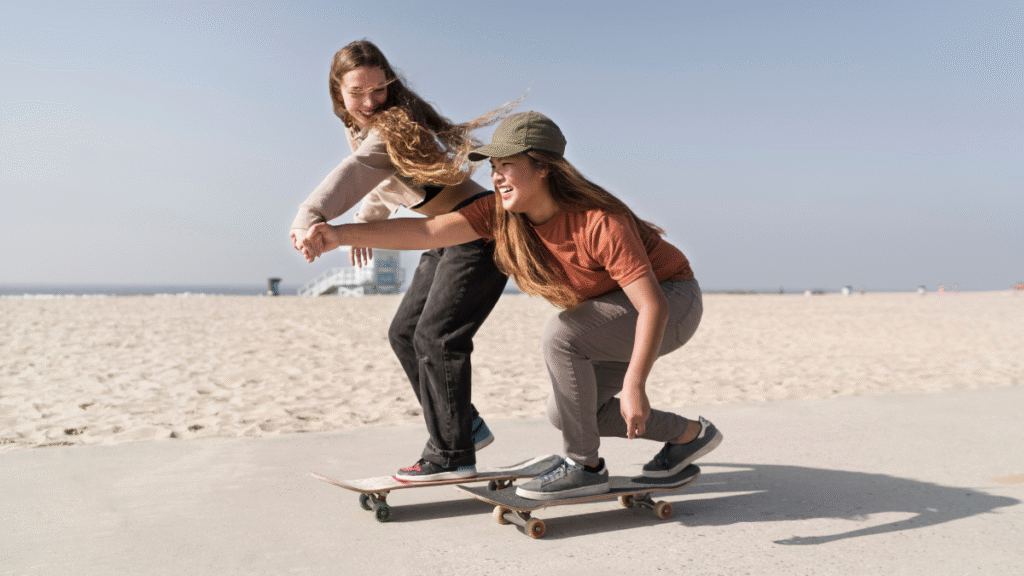How Surfing Inspires Women to Overcome Challenges
More women than ever are stepping onto surfboards, drawn not just by the thrill of riding waves but also by the personal growth surfing inspires. The ever-changing moods require the ocean to navigate uncertainty, to recover from falls, and to draw on inner strength. Many who join all-women’s surf retreats or organizations like Chica Brava find this unique environment highly supportive of learning and evolving. These collectives prioritize encouragement, safety, and fun over judgment and competition, letting participants focus on their progress at every stage. The process of learning to surf serves as a powerful metaphor for overcoming obstacles in daily life. Each wave demands focus, perseverance, and adaptability. Falling off the board and getting back up again teaches resilience, a trait that strengthens with every session. The experience of overcoming a challenging paddle out or conquering fear of larger waves provides a genuine boost in confidence, helping women realize they are capable of more than they may have believed. This newfound self-belief often extends far beyond the waves, showing up in the way women approach work, relationships, and new endeavors.
The Role of Supportive Communities in Surfing
While surfing may appear to be an individual pursuit, its heart lies in community. Support networks—whether in person or online—can be crucial for learning, safety, and continued participation, especially for women new to the sport. These communities of like-minded individuals create safe and positive spaces to ask questions, share triumphs and setbacks, and offer encouragement through every stage of the journey. Many have found that the camaraderie experienced in women’s surf groups is transformative, providing guidance, motivation, and emotional support. Local surf collectives and international organizations alike form ways to lift each other, hosting everything from beginner-friendly meetups to ocean safety clinics and wellness retreats. Through these engagements, women build real friendships and networks of support that often reach far beyond the surfboard. Experienced members tend to mentor newer ones, offering tips and sharing stories from their learning curves, thus helping to pass along both technical skills and the confidence required to tackle new challenges in the water.
Steps to Developing Surfing Skills Safely
- Start with Professional Guidance: Working with certified instructors is a game-changer for most women stepping into the surf for the first time. These professionals understand how to communicate complex skills such as paddling technique, pop-up timing, and reading wave conditions in an approachable way. Structured lessons provide a strong foundation and decrease the risk of injury. Additionally, instructors can give constructive feedback and help surfers identify the right locations and conditions for their skill levels.
- Practice Consistently: Like any athletic pursuit, progress in surfing comes from consistent practice. Even if short, scheduling regular sessions helps solidify muscle memory and increase water confidence. Early on, it’s helpful for women to set small, achievable goals, such as paddling out to the lineup or catching their first green wave. These milestones are motivators, making each outing to the ocean feel purposeful and rewarding, and helping beginners become more comfortable each time they enter the water.
- Join Group Sessions: Surfing alongside others adds layers of encouragement and camaraderie. Many women find that group lessons or joining a surf club helps reduce the intimidation factor. Shared experiences in the water create a supportive dynamic, where cheering others on is just as fulfilling as personal success. Learning with peers creates accountability, making it easier to stick with new routines and celebrate every milestone achieved together.
- Study Ocean Awareness: Understanding ocean dynamics and local surf etiquette is essential for both safety and enjoyment. Learning to recognize currents, tides, and shifting sandbars takes time, but with guidance and observation, women can become adept at reading beach environments. Safety clinics and local knowledge exchanges help ensure that everyone feels prepared, which builds not only technical skills but also confidence and peace of mind in the water.
Mental Health and Confidence Through Riding Waves
The mental and emotional benefits of surfing are significant and increasingly supported by research. Immersion in ocean environments has been linked to reductions in stress, anxiety, and depression symptoms. The ocean’s rhythmic movements and the necessity to focus on the present moment provide a meditative effect, relieving daily pressures. For women juggling busy work schedules, family responsibilities, or life changes, surfing can quickly become a sanctuary for emotional wellness. Conquering the uncertainty of the surf also catalyzes personal growth. Every successful ride brings a unique sense of achievement and a reminder that new challenges can be faced and overcome. This confidence is not only limited to time spent in the waves—it often spills over into other aspects of life, whether speaking up in meetings, leading community projects, or taking on entirely new hobbies with a sense of courage and curiosity.
Learning from Other Women’s Experiences
Real-life testimonials and stories resonate deeply with women entering the sport. Some begin surfing as children, guided by family or community, while others discover it later, after seeking adventure or a way to reconnect with nature. Each woman’s journey is unique; listening to these diverse voices provides newcomers with a rich source of inspiration. Stories from surfers who have faced injury, cultural adversity, or self-doubt—and have still persevered—help normalize the experience of overcoming setbacks and learning from them. Firsthand accounts published in resources like Surfer Magazine’s profiles of women surfers offer inspiring glimpses into the resilience and passion that define the women’s surfing community. Sharing these stories helps others recognize that everyone’s journey includes high points and hurdles, encouraging women to support one another through every twist and turn of their paths.
Breaking Down Gender Barriers in the Surf Scene
The dynamics of surfing have shifted dramatically in recent years, with women not just participating but leading the way. Increased opportunities for training, competition, and leadership roles are reshaping what was once a male-dominated environment. All-female surf groups, combined with broader social discussions about equity, are making the water more accessible and comfortable for newcomers from all walks of life. Issues of representation and recognition remain, but organizations and the broader surf media have taken steps to highlight female talent and narratives. Expanded media focus, such as articles about women’s thriving surf culture, serves as an important source of visibility. By shining a light on role models and surf champions, a new generation of girls and women feels welcomed and empowered to take up their own place in the lineup.
Connecting In and Out of the Water
The sense of belonging created by surf communities extends far beyond daily surf sessions. Retreats, club outings, and organized boardsport festivals are common forums for women to share advice, learn new skills, and build lasting relationships. These shared experiences often springboard new opportunities and collaborations in and out of the water.Stories of women launching eco-friendly businesses, organizing charity paddles, or advocating for marine conservation often begin with bonds formed within their surf communities. The support from fellow surfers encourages women to step into new roles, pursue leadership opportunities, and inspire others. Whether on the beach or at a community event, these friendships become the scaffolding for lifelong growth and resilience.







